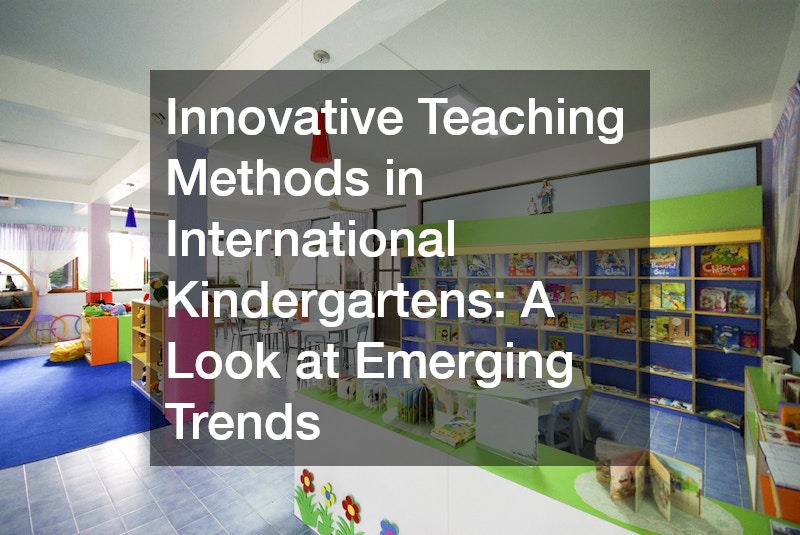International kindergartens are at the forefront of integrating cutting-edge educational methods to enhance early childhood learning. As these institutions cater to a diverse, global student body, they are increasingly adopting innovative teaching strategies that cater to a range of learning styles and cultural backgrounds.
Embracing Technology
One of the most significant trends in international kindergarten programs is the integration of technology into the classroom.
Interactive whiteboards, tablets, and educational apps are becoming common tools. These technologies not only engage young learners through interactive content but also facilitate personalized learning experiences. Apps that focus on early literacy, numeracy, and language skills can adapt to each child’s pace, making learning more effective and enjoyable.
Project-Based Learning
Another emerging trend is project-based learning (PBL), which emphasizes hands-on, experiential learning. In PBL, children work on projects that are meaningful to them, often involving real-world problems or scenarios. This method encourages creativity, critical thinking, and collaboration. For example, a project might involve building a model of a sustainable community, allowing children to explore concepts of ecology and engineering in a fun, engaging way.
Cultural Integration and Multilingual Education
International kindergartens also focus on integrating diverse cultures into the curriculum. This approach not only celebrates global diversity but also helps children develop cultural competence and empathy from an early age. Multilingual education is a key component, with schools offering programs in multiple languages to support language development and prepare children for a globalized world.
Social-Emotional Learning
Lastly, there is a growing emphasis on social-emotional learning (SEL) in international kindergartens. SEL programs help children develop essential skills such as empathy, self-regulation, and effective communication. By fostering a supportive and inclusive environment, these programs enhance students’ emotional well-being and improve their ability to navigate social interactions.
In conclusion, international kindergartens are leading the way in adopting innovative teaching methods that cater to a global and diverse student population. By integrating technology, project-based learning, cultural enrichment, and social-emotional development, these schools are setting new standards for early childhood education.


